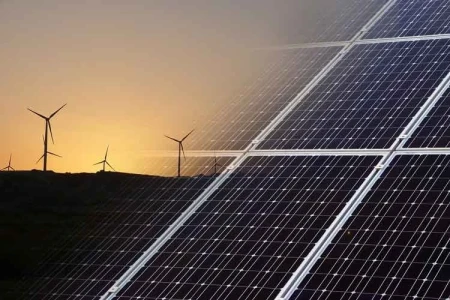Georgia PSC Approves 500 MW Battery Storage Plan

The Georgia Public Service Commission (PSC) has approved a significant expansion of the state's energy storage infrastructure, green-lighting a plan for Georgia Power to install 500 megawatts (MW) of battery energy storage systems (BESS). This decision marks a major step forward in the state’s transition to more reliable and sustainable energy sources.
The 500 MW of battery storage will be distributed across several locations throughout Georgia, including co-located sites at existing solar farms and retired power plants. The new facilities are designed to provide grid support and help manage the intermittent nature of renewable energy sources like wind and solar. By storing excess energy during times of low demand and discharging it during peak periods, the storage systems will play a crucial role in stabilizing the state’s power grid.
Battery energy storage offers multiple benefits, such as improving grid reliability and flexibility, enabling greater integration of renewable energy, and reducing the need for fossil fuel-powered plants that are typically used to meet peak demand. With Georgia Power facing rising energy demand and a growing renewable energy portfolio, the addition of 500 MW of storage capacity is seen as essential to maintaining a reliable power supply while increasing the state’s reliance on clean energy.
The project is part of Georgia Power’s broader plan to meet the state’s clean energy goals and reduce greenhouse gas emissions. The company has committed to significantly reducing its carbon footprint by 2030 and reaching net-zero emissions by 2050. Battery energy storage is a key part of this strategy, as it allows Georgia Power to store renewable energy when it is abundant and use it when needed, without relying on fossil fuels.
The approved plan also includes two key innovations that are expected to improve the efficiency and cost-effectiveness of the storage systems. First, the storage units will be deployed in conjunction with existing solar facilities, such as those at Robins Air Force Base and Moody Air Force Base. These co-located systems take advantage of existing infrastructure, minimizing the need for new transmission lines and reducing overall project costs. Additionally, the project will repurpose some of Georgia’s retired power plant sites, further cutting down on construction and development expenses.
The battery storage systems will be deployed in phases, with the first phase expected to come online in 2024. The systems are designed to have a four-hour discharge duration, ensuring they can provide backup power during times of high demand or when renewable energy production is low. The overall goal is to deploy a robust, scalable storage solution that can support Georgia’s renewable energy goals, as well as its long-term grid stability.
In terms of oversight, the PSC has mandated that Georgia Power submit quarterly progress reports to ensure the projects meet all safety, environmental, and financial benchmarks. The state’s Public Interest Advocacy Staff will also monitor the developments, providing an added layer of accountability.
This decision is a win for both Georgia residents and the environment. By investing in cutting-edge storage technology, the state is not only increasing its energy security but also taking meaningful steps toward reducing its dependence on fossil fuels and achieving its sustainability targets. Battery energy storage represents a critical element of the future energy landscape, and Georgia’s investment in these systems signals the state’s commitment to leading the way in clean energy innovation.
As the project moves forward, it is expected to be a model for other states seeking to enhance their grid resilience while meeting ambitious clean energy goals. With this approval, Georgia is well-positioned to continue its transition to a greener, more reliable energy future, ensuring that its residents benefit from affordable, sustainable power for years to come.









